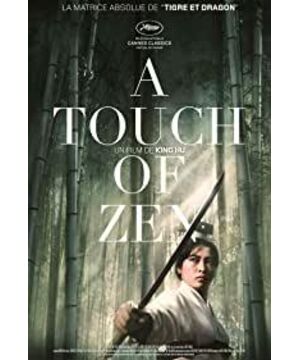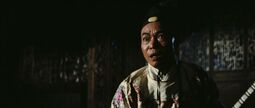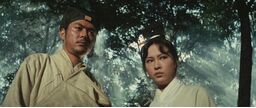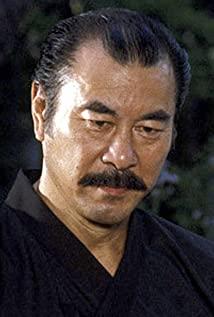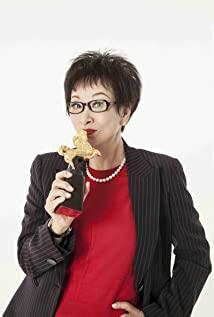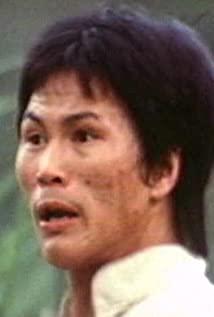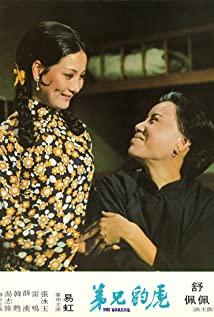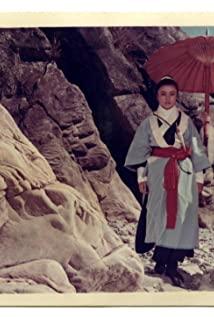"Chivalrous Girl" places the question of human nature in the Chinese cultural field of Confucianism, Buddhism and Taoism for questioning and reflection. The film shows the fusion and conflict of several forces. The male protagonist imitates Zhuge Liang and thus has the characteristics of complementing Confucianism and Taoism. The chivalrous girl is influenced by Confucianism and Buddhist culture and is somewhat heretical. The two are linked together to deal with the minions of Dongchang. Finally, Zen Buddhism represented by Master Huiyuan "sublimated" the theme. The characters are all very distinct, the boundaries between good and evil are clear, and there are traces of drama and novels. As one of the protagonists, the chivalrous girl only appeared in the 28th minute of the film, which is a typical example of "deliberate delay". This design creates a sense of suspense and tension. When appearing, the chivalrous woman is a mysterious character, difficult to distinguish right from evil, taciturn. With the development of the plot, her life experience was gradually revealed. It turned out to be a famous family named Yang Huizhen, the daughter of minister Yang Lian, who escaped because her father was murdered by Wei Zhongxian, and was rescued by Master Huiyuan and learned martial arts. Since then, Yang Huizhen's image has gradually separated from the mysterious sense of reality and fantasy when she appeared on the stage. For example, when describing martial arts, they did not show how extraordinary their martial arts were. After the battle in the bamboo forest was won, there was a scene where she was so tired leaning against the bamboo and panting. In the first half of the film, the chivalrous woman clearly has the intention of imitating men, such as women walking around town disguised as men. In the temptation and communication with Gu Xingzhai, he also took the initiative, and took the initiative to let him come to see him at night. There is an interesting substitution of the talented and beautiful model during the night tryst: in the past, the man played the piano and the woman listened to it, such as Sima Xiangru and Zhuo Wenjun, Zhang Junrui and Cui Yingying, but here it is Yang Huizhen who plays the piano and Gu Xingzhai listens to the piano. Yang Huizhen's song "Drinking Alone under the Moon" hints at the end of the two who will eventually part ways. On the other hand, she played the virtuous role that Confucianism respected (serving her mother) and running the house. The plot of abandoning the son and running away in the end is in the same vein as the legend of Tang Dynasty, suggesting that women with heretical colors are not tolerated by the world after all. This character has a strong sense of contradiction. Since there is very little dialogue, and most people are shown with actions, it is easy to think of the portrayal of women in the immature period of ancient vernacular novels. Gu Xingzhai's character can be said to be the most three-dimensional and rich image in the whole film. His admiration for Zhuge Liang is beyond words, and his home is hung with "indifferent ambition, tranquility and far-reaching" (Zhuge Liang's famous saying), and was blamed by Gu's mother for refusing to take the rural examination for "going life in troubled times, not seeking information from the princes" (Zhuge Liang's famous saying) famous) answer. Zhuge Liang's thought belongs to the complementarity of Confucianism and Taoism. "To be good is to help the world, and to be poor is to be alone." Gu Xingzhai lived in a chaotic period of the Ming Dynasty. Dongchang spies were all over the place, and the people were panicking. Under such circumstances, he knew very well that even if he passed the imperial examinations, It is also difficult to achieve ambitions. In the first half of the film, Gu Xingzhai basically appears as a very embarrassed observer, and there are often scenes of him peeping and falling while walking, reflecting his frustration in real life. Ouyang Nian asked him if there were ghosts in the General's Mansion. Gu Xingzhai replied by citing "Zibuyu's strange power and chaos", but he secretly explored it in private. Such contradictory words and deeds reflect the conflict in his thinking. He is not a nerd who doesn't ask about the world, and his alertness is shown many times in the film. For example, he was very sensitive to every stranger who appeared in the town. When Gu's mother wanted to reveal to Ouyang Nian that the general's mansion was inhabited, he quickly cut off the conversation, hid behind a pillar and overheard the conversation between Yang Huizhen and General Ding, etc. Yang Huizhen saw that he was alert and smart, so she reminded Dr. Lu that "Gu Xingzhai is not an ordinary person." These subtle actions reflect Gu Xingzhai's desire to realize his life value by exploring a secret. Not only is he not indifferent to fame and fortune, but he is very ambitious, but he can't find the opportunity to display it. The film uses a lot of subjective lenses to observe the people and things happening in the town from Gu Xingzhai's point of view. In the second half of the film, he finally waited for the opportunity. Yang Huizhen encountered the difficulty of being chased by Dongchang. Gu Xingzhai designed the strategy of "catching turtles in the urn" according to the conditions of being outnumbered and outnumbered. This is a skill he has acquired since he was a child. After that, the power of the hero and heroine was replaced again. Gu Xingzhai changed his previous embarrassment and began to issue orders in an orderly manner. However, Yang Huizhen, due to lack of strategy, could only obey Gu Xingzhai's dispatch even if he had martial arts. Gu Xingzhai skillfully used the haunted legend of the general's mansion to spread rumors and disturb the enemy's mind. Even imitating Kong Ming's principle of "borrowing arrows from grass boats", making dummies as scary ghosts to obtain weapons. After winning, Gu Xingzhai proudly shook his feather fan (he wore a similar Taoist robe imitating Zhuge Liang), and went down from the mountain, laughing wildly all the way. arrogant. He walked up to each of his designs, with a self-appreciative attitude, intoxicated with victory and unable to extricate himself. Then, when he saw the corpses all over the ground, he turned from ecstasy to shock, and suddenly realized that his seemingly game design was actually dripping with blood, killing countless people, and witnessed the real and painful death of life. Gu Xingzhai did not achieve real transcendence. Hu Jinquan's attitude towards him was obviously critical and sarcastic. The image of the villain is also very attentive by the director. The three villains appeared one by one, following the rule of "the height of the Tao is one foot, and the height of the devil is one zhang", and they progressed layer by layer. The first villain, Ouyang Nian, obviously showed his shortcomings in lack of strategy. For example, when he first met Gu Xingzhai, he attracted the attention of the other party, told him to use his real name, and often appeared as an uninvited guest, which was solved very early. Menda is insidious, daring, vicious, and does not believe in ghosts and gods, but he finally succeeds. In the end, Xu Xianchun appeared, with the most powerful martial arts and the most scheming, almost making it difficult for Yang Huizhen and others to resist. Until the Zen represented by Huiyuan appeared. There is a lot of controversy about the ending. Since I don’t know much about Zen, I will write it here.
View more about A Touch of Zen reviews


